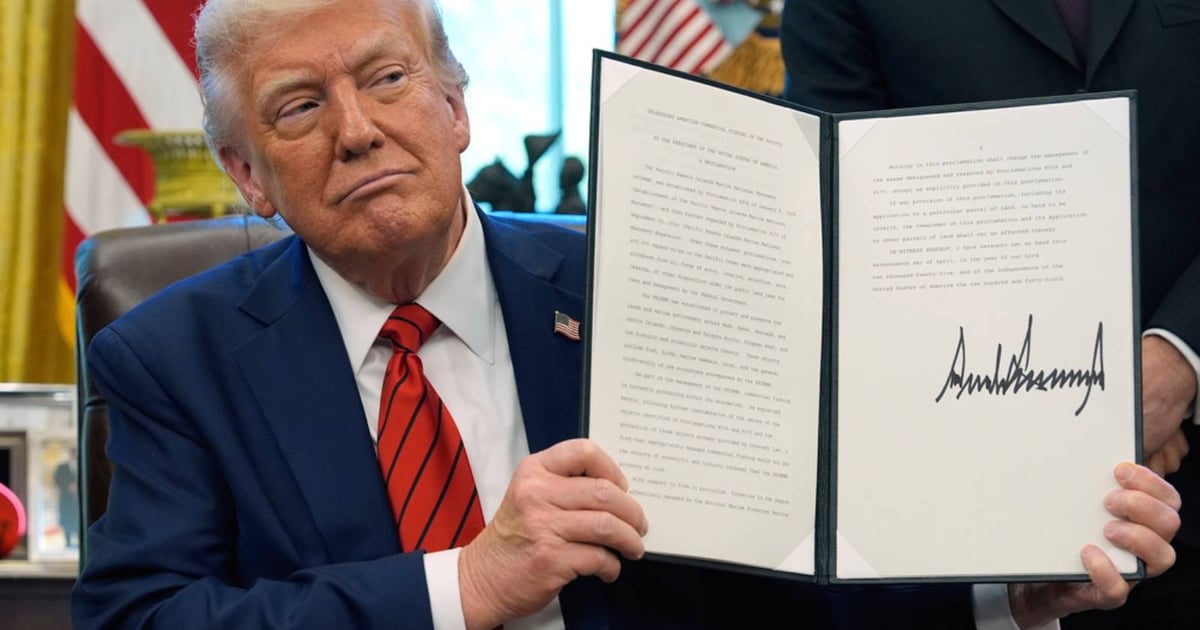
From Samirul Ariff Othman
US president Donald Trump‘s return to aggressive trade policies – this time with a broader sweep of tariffs across both allies and rivals – has sparked concern globally.
Malaysia, with its export-reliant economy and integrated role in the electronics, commodities, and manufacturing supply chains, has reasons to monitor these developments closely. But concern must not turn into undue anxiety.
The legal, political, and strategic layers behind Trump‘s tariffs reveal a picture more volatile than permanent – an assertive, yet unstable, use of executive power that can be undone or blunted by legal checks, institutional resistance, and strategic patience.
Unilateralism under legal fire
At the core of this episode lies a critical legal question: Can Trump legally enforce these tariffs?
His administration has attempted to revive the use of the International Emergency Economic Powers Act (IEEPA) of 1977 to justify the imposition of wide-ranging tariffs on the basis of “economic emergency”. This move is a legal stretch.
In VOS Selections vs US, the US Court of International Trade ruled in May that Trump’s “Liberation Day” tariffs exceeded the statutory authority granted under IEEPA.
The court issued a permanent injunction barring their enforcement. That ruling, however, has been temporarily stayed pending appeal to the Federal Circuit, which heard arguments in July
The matter may escalate to the US Supreme Court, where two constitutional doctrines will come under scrutiny: the nondelegation doctrine, which limits how much legislative authority Congress can delegate to the executive, and the major questions doctrine, which holds that executive action with far-reaching economic consequences must have explicit congressional approval.
In short, the legal underpinnings of the tariff regime are shaky. If higher courts uphold the lower decision, the tariffs will likely collapse under judicial review.
Symbolism outweighs substance
European Commission president Ursula von der Leyen’s statement that she “cannot force European companies to comply” with U.S. tariffs has been interpreted by some as a sign of institutional weakness. In reality, it is a calculated strategic posture.
The EU is not legally bound to enforce US trade policy within its own jurisdiction. Von der Leyen’s comment was less about law and more about political signalling to frame the US approach as unilateral and coercive, while drawing international attention to the extraterritorial nature of American economic power.
It is important to note, however, that such statements have little impact on the tariffs themselves. They are not legally binding, nor do they materially change the commercial exposure of EU firms exporting to the US.
Nonetheless, they do serve a broader public diplomacy function: portraying the EU as a defender of multilateralism and rules-based trade amid rising economic nationalism.
Trade as political leverage
Trump’s tariffs cannot be understood purely as economic policy but as part of a broader geopolitical toolkit. Analysts have noted that his tariff announcements often coincide with diplomatic pressure points, such as tensions with Canada over Gaza or with Brazil amid its constitutional crisis.
In this way, tariffs become a form of negotiation by intimidation: pain is inflicted through tariffs, and then relief is dangled as leverage in unrelated arenas.
This is classic transactional diplomacy. It is not grounded in international trade norms, nor in economic rationale. It is power politics masquerading as policy.
Trump’s team may claim national emergency justification, but the courts have questioned both the legal and factual basis for such a claim.
Should Malaysia be anxious?
Malaysia, understandably, is watching these developments with concern. A 19% tariff on Malaysian goods, especially in electronics and precision manufacturing, would have direct implications for exports and employment.
Malaysia’s exports to the US totalled US$42.3 billion in 2024. A blanket tariff could potentially impact over 300,000 jobs linked to Malaysia’s electronics, electrical equipment, and industrial component sectors.
However, panicking is premature.
Firstly, the legal process is ongoing, and the tariffs may not survive judicial review. Secondly, even if implemented, they may be short-lived – reversible by a future president or curtailed by congressional legislation.
Thirdly, Malaysia is not a primary target of US strategic tariffs; its inclusion appears part of a broader scattergun approach rather than a calculated geopolitical message.
Most importantly, Malaysia must avoid a posture of defensiveness or desperation. Strategic calm, not knee-jerk reactions, should guide its response.
Diversification of trade partners, strengthening Asean-led value chains, and asserting its position in global semiconductors, green tech, and rare earths remain more meaningful than reactive posturing.
Malaysia’s greatest leverage lies in being a reliable, neutral, and rules-based partner at the heart of Asean, not in appearing anxious or appeasing.
The current tariff wave is not a permanent reordering of trade architecture, it is a phase of legal and political experimentation. Malaysia should remain watchful and nimble, but not rattled.
Strength lies not in bluster, but in composure, legal awareness, and long-term strategy. The world will remember not just how countries respond when pressured, but how they hold their ground with quiet confidence.
Samirul Ariff Othman is an adjunct lecturer at Universiti Teknologi Petronas, an international relations analyst, and a senior consultant with Global Asia Consulting.
The views expressed are those of the writer and do not necessarily reflect that of FMT.






